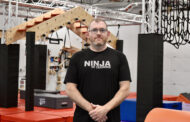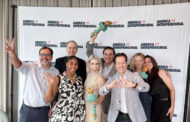The White House announced a new ‘Smart Cities Initiative’ this week that will bolster the Kansas City tech community.
The $160 million grant has a slew of moving parts, but one portion includes a $6 million grant from the National Science Foundation that 15 communities, including Kansas City, will benefit from.
The exact amount each city will receive has yet to be announced, but Kansas City’s portion will be managed by KC Digital Drive. The NSF grant is going through US Ignite, a national non-profit organization.
KC Digital Drive communications director Jason Harper said Digital Drive and US Ignite work closely on similar missions to develop next-generation technology applications. US Ignite focuses mainly on those using gigabit Internet.
The 15 cities make up the Sustainable Ecosystem of Smart Applications project, or cities that have the opportunity to leverage existing high-speed broadband networks. Outside of Kansas City, Kan., and Kansas City, Mo., the cities include Chattanooga, Tenn., Burlington, Vt., Cleveland, Ohio and 10 others.
US Ignite is contributing to the 15 communities with technical support via cloud services and best practices.
Each community is responsible for contributing at least two entries to a “‘smart city app store,’ containing open, interconnected technology applications addressing social problems,” according to a release. The problems range from transportation to clean energy, public safety, education, workforce technology, health IT and advanced manufacturing.
“Participating in the US Ignite SESA project will help cement Kansas City’s reputation as a leader in entrepreneur-driven innovation,” Kansas City Mayor Sly James said in a release. “Along with our sister city of Kansas City, Kan., we were the first city to get Google Fiber. In Kansas City, Mo., earlier this year we launched the Cisco Smart + Connected Communities Living Lab. This grant allows us to expand on our efforts to make KC a true leader in civic technology.”
KC Digital Drive is already thinking about a few technology applications that are in the hopper to represent the area’s contribution to the smart cities group.
One of the projects comes from the University of Kansas Medical Center using gigabit Internet to help caregivers of Alzheimer’s patients. The second comes from the University of Missouri Center for Eldercare and Rehabilitation Technology, using Internet and sensors in seniors’ homes.




































